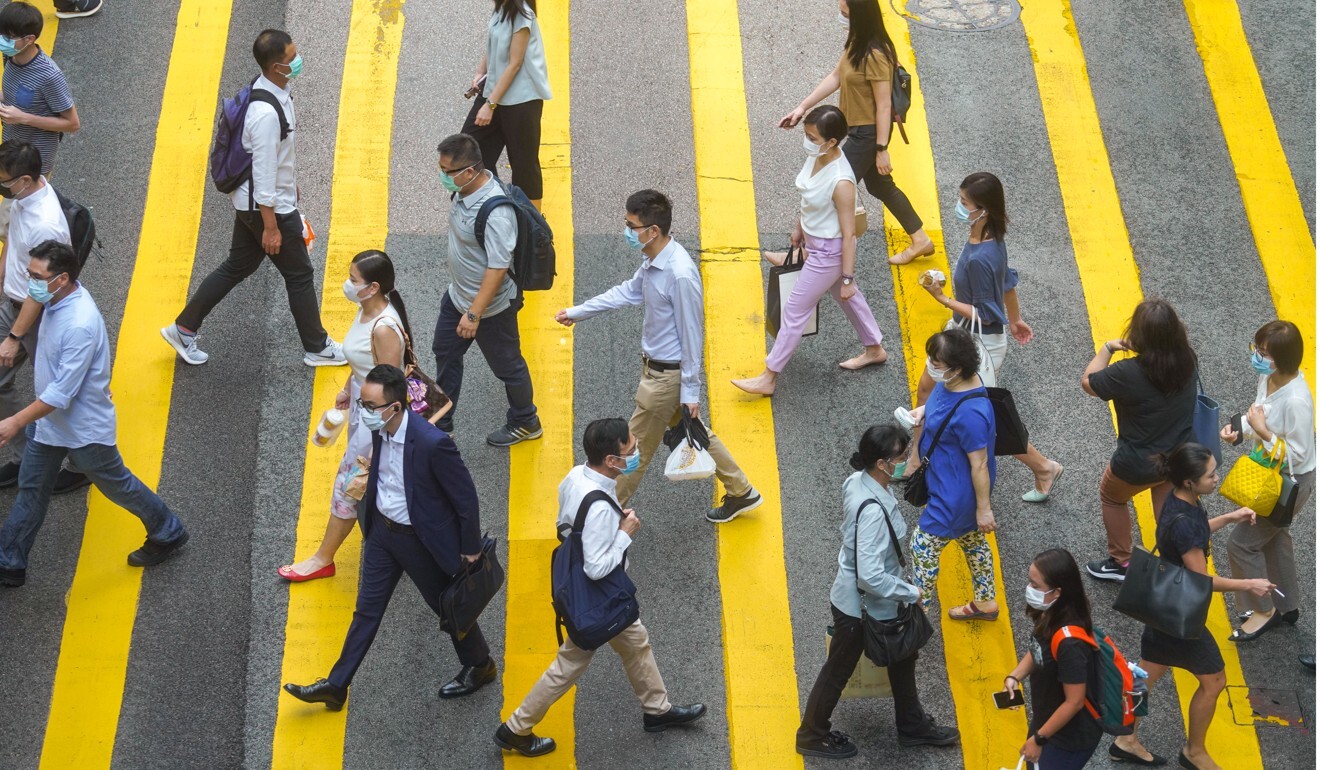
Hong Kong budget: more than 250,000 jobless workers to be offered 1 per cent interest loans in unprecedented measure
- According to a source, HK$10 billion will be set aside for the loans, capped at HK$80,000, which will have an annual interest rate of 1 per cent
- But unions, which have been calling for the creation of an unemployment support fund, were muted in their enthusiasm
Unemployed Hongkongers will be offered low-interest bank loans – capped at HK$80,000 – under an unprecedented budget measure targeting more than 250,000 jobless workers, the Post has learned, a proposal greeted with caution by the city’s unions.
A total of HK$10 billion (US$1.28 billion) would be set aside for the loans, a source close to the budget formulation process said.

“Without cash handouts, the administration still hopes to help the unemployed survive this difficult time,” the source said.
Under the proposal, individuals able to prove to a bank they had been out of work for a few months could apply for a loan, at an annual interest rate of 1 per cent.
Those who repaid the money on time within the next five years would get the interest back at the end.
Freelancers who lost their jobs but could prove they had been employed in the past few months were also eligible, the source said.
Applications, which will be open for less than a year, will be vetted by banks.
Brace for austerity: Hong Kong finance minister tempers handout expectations
“It will be a one-off measure and won’t last for more than a year, as the government is still optimistic about the economic recovery,” the source added.
According to a government assessment, the risk of people abusing the system is small, given those who fail to return the money will be left with a poor borrowing record, which will undermine their credibility for future loans.
The financial secretary was said to have devised the loan scheme given the administrative and political complications associated with setting up, in such a short time frame, an unemployment fund for distributing cash to those out of work, as demanded by unions and some parties.
Constrained by an estimated HK$300 billion deficit for the 2020-21 financial year, Chan hinted earlier he would not deliver cash handouts and would dish out fewer sweeteners in this year’s budget.

But sources told the Post that Chan would announce investment initiatives to create a green ecosystem as a new driver for the slow economy. Unions on Tuesday were cautious about the mooted unemployment loans.
Pro-establishment lawmaker Michael Luk Chung-hung, who represents the Federation of Trade Unions, said it would be disappointing if the government did not heed calls to set up a much-needed unemployment support fund for those who had lost their jobs amid the pandemic.
His union has collected more than 80,000 signatures for a petition asking the government to set up a fund for the unemployed in the coming budget.
“The low-interest [loan] scheme is better than nothing, but we still need to wait and see what the eligibility criteria and application process will be like,” Luk said, anticipating the plan could get mired in bureaucracy.
I think people might be reluctant to apply for the government loan. Some people have already used up their savings and had to take out personal loans from banks
Luk added he expected the low-interest personal loan would benefit some, particularly in cases where the breadwinner of the family had lost their job.
“Some expenses like rent or mortgages can’t be reduced immediately, so many people are [behind on their bills]. I believe those who would apply for the loan might use it to cover big expenses that have piled up while they were out of work,” he said.
Carol Ng Man-yee, chairwoman of the Confederation of Trade Unions, said the government’s planned measure was detached from reality, ignoring the calls of many industry groups for an unemployment fund.
Those who lost their jobs or were put on unpaid leave by their employers during the pandemic could only rely on their personal savings, money borrowed from friends and family or personal loans from banks, she said.
Hong Kong banking on environment, sustainable development driving economic recovery
“Not everyone is eligible for the CSSA scheme even if they lost their job,” Ng said, referring to the city’s Comprehensive Social Security Assistance welfare programme. “With nowhere else to turn, some people with no income have had to take personal loans.”
Personal instalment loans from banks charge an annual percentage rate of between 1.78 per cent and 20.82 per cent, according to market data.
Ng noted that many details of the government loan measure remained to be seen, including how the loan would impact an individual’s credit score.
Sze Lai-shan, a community organiser from the Society for Community Organisation, called the low-interest loan scheme “overcomplicated”, saying she feared it may put unemployed people into debt.
Rent control proposal could consider inflation, will respect owners’ rights
“I think people might be reluctant to apply for the government loan. Some people have already used up their savings and had to take out personal loans from banks, which charge high-interest rates, as a last resort,” Sze said.
Sze, who works closely with low income and working-class groups, was concerned the proposal would do little to help residents in finding jobs, particularly as struggling businesses had already been hampered by social-distancing regulations and lay-offs.
Separately, Allen Shi Lop-tak, president of the Chinese Manufacturers’ Association, on Monday said he hoped the budget would target industries most in need of help such as retail and travel despite the finance minister having previously said such sweeteners would be limited.
He also expressed hopes there would be additional measures aimed at helping local industries to seize opportunities amid the pandemic, including providing low-interest loans to manufacturers.
Additional reporting by Chan Ho-him


